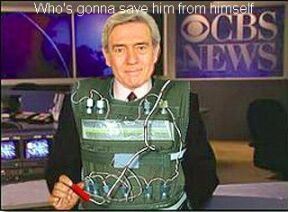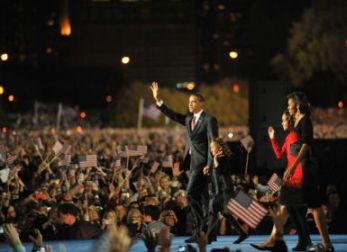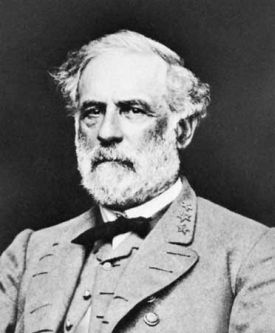Rhetorical Recklessness
From The New CriterionWhen I was American editor of the Times Literary Supplement during the Clinton era, the paper published an article by the philosopher Thomas Nagel on the Monica Lewinsky affair which was much cited by Clinton’s apologists at the time. It was a plea for President Clinton to be spared the obnoxious probing of his private life that had yielded a bumper crop of headlines and that was eventually to lead to his impeachment. In the course of his article, Professor Nagel wrote that he now regretted his own support, seven years before, for a similar probing of the private life of the Supreme Court nominee, Clarence Thomas, by Democrats bent on denying him Senate confirmation. So apparently casual was this aside, however, that a copy editor cut it for space, and it was only the vigilance of Ferdinand Mount, the editor at the time, during a final read-through which caught the omission and restored it.
Mr Mount saw at once that this concession, this acknowledgment of error, was essential to the article’s seriousness. Without it Nagel’s plea would hardly have been a real argument and could have been dismissed as just another partisan rant of a kind that was common at the time and has become even more common since. Six years later it has become easier still for our public controversialists to ignore the presence of that silent interlocutor who used to whisper in our ear when we were exaggerating or contradicting ourselves or being unfair to the other side. Now the presence of even the most modest concessionary clause comes as a surprise, and two or three of them have the power to get you labeled a moderate. Yet they are important signs of the writer’s rhetorical conscience and of his moral seriousness — and that he means to write to persuade those who disagree as well as to elicit cheers from those who already agree with him.
The absence of any shame in self-contradiction among our journalistic and political controversialists today is a powerful indication that they only expect to be heard by the already-persuaded. In other words, communication has ceased. Even a dishonest or sophistical attempt to justify such rhetorical lapses would be evidence that shame persists and therefore that the other side’s arguments, however distorted and belittled, still have the power to disturb us. But when self-contradiction is simply ignored, nothing further in the way of rational discourse can be expected. For the political game to work, each side must be prepared to return the service of the other, but the current election season makes it more evident than ever not only that the game is over but that the ever-dwindling minority of the politically interested who cheer as each side cannons its shots into the fence without regard for the other no longer wish to see a game but merely a display of emotion.
It seems unlikely that we will ever see a more comprehensive demonstration of the end of political discourse, at least for the time being, than the media’s treatment of the story that, as I write, looks as if it may prove to have been the undoing of Senator Kerry’s candidacy for the presidency. Professor Nagel’s conscience was able to stretch back seven years to catch on a self-contradiction, but in all the media coverage I read of the ads by the Swift Boat Veterans for Truth in August — coverage that was almost non-existent until Kerry realized he had to answer them — I didn’t notice anyone who could even remember as far back as seven months. Then, in February, Terry McAuliffe had invited voters to picture “John Kerry, a war hero with a chest full of medals . . . standing next to George Bush, a man who was AWOL in the Alabama National Guard.” The media went off in full cry after the missing records that might have proved that the President had gone AWOL or worse. Michael Moore openly called him a “deserter” and was not corrected by the Democratic presidential candidate General Wesley Clark, at one of whose campaign events he said it — or any other Democrat.
Back then, when the supposed scandal made the cover of Newsweek, I don’t remember anyone’s saying that searching through military records and the recollections of contemporaries for 30-year old scandal in order to discredit a presidential candidate was illegitimate or even tacky. By August, however, when the Swift Boat Veterans started running ads which questioned whether or not Senator Kerry was entitled to all the medals he had won during his four months in Vietnam, the outrage against them for so much as raising the question suggested a sudden access of conscience in the media. Now it was the scandal hunters who were dismissed out of hand as liars by those who had been digging around in George Bush’s past only seven months before. The first piece in the New York Times even to mention that any aspersions had been cast against Kerry’s war service set the tone for the rest of the media by being directed not to the verification or denial of the veterans’ claims but to an attempt to find any links — which would be illegal under new campaign finance legislation — between them and the Bush campaign.
As John O’Sullivan wrote at the time, it was reminiscent of the days in the old Soviet Union when attentive readers of Pravda or Isvestia had to wait until “anti-Soviet lies” were denounced before they had any idea of what was being said in the West — and what, therefore, was likely to be the truth. Here too, the obviousness of the media’s attempt to suppress what would, if alleged against the other side, have been a major news story was more likely to have hurt than helped Senator Kerry. If the scandal-happy media were suppressing news of a scandal, there must be something more than the usual potency about it. The Times only ran its piece after Kerry, having tried to ignore the charges, saw that they were damaging him and fired back — also not on the substance but on the putative links to the Bush campaign whose “dirty work” the veterans were doing, said Kerry. Then all the media joined in, opening the floodgates for a torrent of abuse and invective aimed at the Swift Boat Veterans. But this only served further to damage the Kerry campaign.
For the veterans had been clever. Their first wave of ads had elicited an outpouring of anger and execration, but then they produced a second wave of ads calling attention to Kerry’s anti-war activities in 1971. A former prisoner of war in North Vietnam — whose sufferings, after all, were beyond dispute, said that Kerry had given up for nothing what years of torture couldn’t get from him — that is an acknowledgment that American troops had engaged in war crimes. Now whatever may have been the truth about Kerry’s behavior on the Bay Hap river in March of 1969, his Senate testimony and other anti-war speeches were on the record and undeniable and could hardly be dismissed as an irrelevancy in the present contest. But devastating as this ad might have been in any case, it was made much more so by the over-reaction to the earlier series of ads. Kerry, the master of “nuance,” had shown a becoming sense of embarrassment about some of his anti-war activities — though not nearly enough of one in the view of many of the Swift Boat Veterans for Truth. In particular, he had claimed to regret some of his words in testimony before a Senate committee, though not his overall anti-war stance — as if the accusation of his “brothers in arms” as war criminals had been just a matter of a poor choice of words. Still, even so much of an apology as this seemed to have laid the matter to rest until the Swift Boat Veterans’ ads.
But opening fire on the ads and the veterans themselves must have proved a cathartic experience for the media because they made no attempt to distinguish between the doubtful ones which questioned Kerry’s medals and the much more tricky ones that questioned the recklessness and disloyalty of some of his anti-war activities. A favorite tactic of the pro-Kerry press was to point out, like Byron Pitts of CBS, that one of the leaders of the Swift Boat Veterans for Truth, John O’Neill, had been “handpicked by the Nixon administration to discredit Kerry” or that he was “Nixon’s point man.” Imagine the nerve of old Tricky Dicky, looking around for a way to defend himself against accusations of war crimes — and then picking somebody who’d actually served where Kerry had served in order to rebut his claims with authority. How low can you sink? Old reliable Maureen Dowd likewise called O’Neill “the Nixon tool” and went on to what was for her a routine impugning of the President’s honor, writing that “It makes sense for W. to use surrogates to do his fighting, just as he did when he slid out of Vietnam and just as he did when he sent our troops to fight his administration’s misbegotten vanity war in Iraq.” Of course she never mentions the comparable treatment meted out to Bush by Kerry surrogates.
The media’s unnuanced hostility to the veterans and their ads was directed at the first wave and the second alike, which made it look as if Kerry were also defiant and unrepentant about having made the reckless accusations for which he had earlier apologized. Voters who might otherwise have turned their noses up at what could still have been presented as sleazy gossip-mongering or partisan distortions subsequently had a reason to take them more seriously, since criticism of them was also directed at those who still resented what they saw as Kerry’s disloyalty. If neither the candidate nor the media chose to differentiate between the two kinds of ads, maybe the first ones were as legitimate as the second obviously were to those for whom loyalty was paramount. This could account for the sudden drop in Kerry’s poll numbers, particularly among veterans. Many of them must have felt like Bob Dole, crippled for life by his injuries in the Second World War, who was unlikely to have been drawn into questioning the seriousness of Kerry’s wounds, as he did on CNN, until he was irritated into it by the indiscriminate obloquy heaped on the Swift Boat Veterans even for legitimate criticisms.
“He’s got himself into this wicket now where he can’t extricate himself because not every one of these people can be Republican liars,” said Dole. “There’s got to be some truth to the charges.” And why? Well, maybe because “one day he’s saying that we were shooting civilians, cutting off their ears, cutting off their heads, throwing away his medals or his ribbons [and] the next day he’s standing there: ‘I want to be president because I’m a Vietnam veteran.’ Maybe he should apologize to all the other 2.5 million veterans who served. He wasn’t the only one in Vietnam.” In fact he had apologized, sort of, but it was hardly surprising if, under the circumstances, that fact were lost sight of, and Dole went on to scathing remarks about Kerry’s honorable wounds. “Three Purple Hearts and never bled that I know of . . . I mean, they’re all superficial wounds. And as far as I know, he’s never spent one day in the hospital. I don’t think he draws any disability pay. He doesn’t have any disability. And boasting about three Purple Hearts when you think of some of the people who really got shot up in Vietnam.” It was a reminder of an older standard of honor — one which might otherwise never have been brought up — which looked down on those who boasted of their own heroism.
When President Bush was called upon by Kerry to denounce the Swift Boat Veterans he showed more restraint — and tactical good sense — by replying that he denounced all ads by third party groups, which were blatant exercises in the evasion of campaign finance laws. Once again Kerry, who at the time must have thought of the much greater war-chest available to the Democrats through George Soros and others and imagined that he had more to gain from such ads than Bush, made another serious mistake in refusing to join the President in making such a denunciation. After all, it would only have been gracious of him to acknowledge that he couldn’t expect to profit through his supporters from a technique he would deny to his opponent’s supporters. Not only had he seemed to invite scrutiny of his past when at the Democratic convention he had made his Vietnam service and not his Senate career his chief qualification for the presidency, but he had also welcomed a similar scrutiny directed at George Bush’s military record back in the spring, calling him at one point “a President who can’t even show or prove that he showed up for duty in the National Guard.” Here was a chance to extricate himself from an awkward position. It would only have been smart politics to say: “Let’s agree to leave the subject of who did what during the Vietnam war behind us.”
But Kerry must have thought that without Vietnam he had too little to recommend him as Commander-in-Chief. At any rate, so little did he care for the appearance of having one standard for himself and another for the President that it never seems to have occurred to him to dissociate himself even from a new round of anti-Bush frenzy sparked by the appearance of some apparently damaging documents about the President’s National Guard career on “60 Minutes.” What an opportunity the “60 Minutes” charges might have been for him to issue a statesmanlike call to the media to call off its scandalmongering against both the President and himself! Not only would it have made him appear gracious towards the President, it would have done far more than all his denunciations of the Swift Boat Veterans for Truth to persuade people that they were only trying to drum up scandal against him as CBS was doing against Bush. But it was becoming ever clearer that Kerry was not a gracious man, and could not rise above his dislike of his opponent even when it was in his own interest.
So persistently, in fact, so predictably had all the Democrats been led astray by their hatred for the incumbents in the White House that it almost began to appear as if there were some mastermind behind the scenes there baiting the traps into which they fell again and again. When the “60 Minutes” documents were shown to be forgeries by an alert Internet blogger, my first instinct was like that of George Stephanopoulos — a former campaign operative himself and so presumably alert to the deviousness with which such things are accomplished — to think that they must have been a set-up. And it might have seemed a fair enough ploy at that — to use, that is, one’s opponent’s unreasoning passion, his eagerness to seize even the most doubtful of weapons against one. A really clever strategist might well have concluded that his best course was to make the Democrats even more angry and hate-filled than they already were, and to entice them out of their own strategic avoidance of revealing such feelings with a fake scandal — which could then be used to discredit even legitimate doubts about Bush’s past.
But if Karl Rove (or somebody) could have foreseen the eagerness with which the Democrats and their allies in the media would seize upon the bogus evidence to discredit the President — all the time, of course, they were continuing to insist that the questioning of Kerry’s record by the Swift Boat Veterans was illegitimate — even he could hardly have dared hope that CBS and Dan Rather would have responded to the most damning evidence of forgery by stonewalling like a politician caught in misbehavior. Yet this is exactly what happened when Rather devoted nearly six minutes of “The CBS Evening News” on September 10th to defending the patently indefensible with astonishing disingenuousness. In doing so he ensured that the more potentially damaging allegations against Bush — for instance that he had got into the Guard with the help of preferential treatment — were likely to be dismissed along with the false ones when the latter were shown, as they were bound to be shown, to be based on forgeries.
The most important and almost certainly infallible proof of the inauthenticity of a “memo to file” from Bush’s former commanding officer, Col. Jerry Killian, was that it had been proportionally spaced. Before the age of computers and word processors, this could only have been done by a professional typesetter, yet this was supposed to have been an ordinary typewritten military memo, and only for his own files — files that the wife and son of Col. Killian, who died in 1984, said he never kept. Other indications of non-contemporaneous composition — the Times New Roman typeface and the use of superscripts for ordinal numbers — were mere corroborating details. Yet Rather only answered, inadequately, the corroborating details. “Some” typewriters in 1972 were capable of superscripts, he said, and the origins of Times New Roman dated back to 1931. Sure they did. But the point was that it was not a normal typewriter typeface until the age of computers. And Rather never so much as mentioned the real clincher, which was the proportional spacing. Even the expert used to authenticate the documents in the first place now appeared to be retreating from his initial opinion, which had only authenticated the signature, but his brief interview with Rather was edited to make it appear that he was backing CBS’s refusal to admit that it had been fooled.
Rather’s shamelessness in simply ignoring the most powerful indication of the documents’ falsity and then accusing those who had discovered it of having a “partisan” agenda — once again we see why the network newsmen are so desperate to preserve the polite fiction that they are non-partisan themselves — was another indication of the woeful state into which public discourse has fallen. The more people accuse each other of lying, the easier it becomes to lie. So long as each side routinely makes such claims about the other anyway, what incentive does anyone have to be scrupulous about the truth? The media ought to be the referees in such cases, enforcing a very strict standard of proof on anyone wishing to bring forward the charge of bad faith. But the media engage in such rhetorical recklessness themselves, or stand idly by while charges of lying are hurled back and forth without a word to say against them. As in so many other ways, one has the feeling that there is no ground for the true non-partisan to stand upon. Maybe that’s what President Bush meant by noticing — surely a non-controversial observation? — that those who were not with him were against him.
Discover more from James Bowman
Subscribe to get the latest posts to your email.






